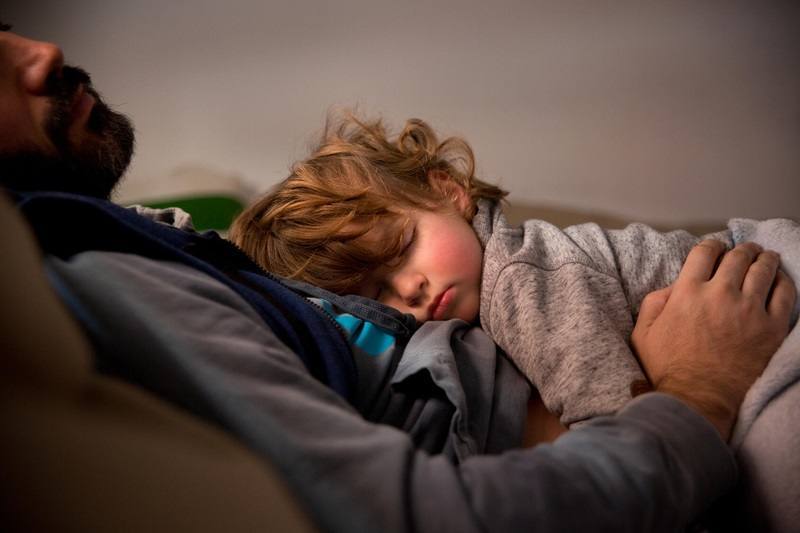-
Mayo Clinic Q&A Podcast
Mayo Clinic Q&A podcast: So your kid won’t sleep — addressing common childhood sleep problems

The amount of sleep you need depends on various factors — especially your age. While sleep needs vary significantly among individuals, there are general guidelines for different age groups.
For kids, getting the recommended amount of sleep on a regular basis is linked with better health, including improved attention, behavior, learning, memory, the ability to control emotions, quality of life, and mental and physical health.
Mayo Clinic experts recommend these general sleep guidelines for each age group:
| Infants 4 months to 12 months | 12 to 16 hours per 24 hours, including naps |
| 1 to 2 years | 11 to 14 hours per 24 hours, including naps |
| 3 to 5 years | 10 to 13 hours per 24 hours, including naps |
| 6 to 12 years | 9 to 12 hours per 24 hours |
| 13 to 18 years | 8 to 10 hours per 24 hours |
| Adults | 7 or more hours a night |
Creating good sleep habits is important. Dr. Julie Baughn, a Mayo Clinic pediatric sleep medicine specialist at the Mayo Clinic Children's Center, suggests the follow do's and don'ts for healthy sleep:
Healthy sleep "Do's"
- Have an age-appropriate bedtime.
- Have a bedtime routine that is relaxing and consistent.
- Have the environment quiet and dark.
- Have your child be active during the day.
- Have regular meals.
- Have the same bedtime weekdays and weekends.
Healthy sleep "Don't's"
- Get rid of the crib too early.
- Expect your young child to “sleep in.”
- Use electronics before bed.
Dr. Baughn remind parents that setting expectations is key to helping children develop a healthy bedtime routine.
"Kids are really good at knowing what you're going to say yes to at bedtime," says Dr. Baughn. "And they're just having kind of normal bedtime resistance, which is a normal part of growing up, of testing limits, trying to stay up later. Consistency is key."
On the Mayo Clinic Q&A podcast, Dr. Baughn joins Dr. Angela Mattke, a Mayo Clinic pediatrician and host of #AsktheMayoMom to answer some common questions about sleep problems in children, including getting your child to go to sleep and stay asleep, the safety of melatonin for kids, and determining when should your child see a sleep specialist.
For more information and all your COVID-19 coverage, go to the Mayo Clinic News Network and mayoclinic.org.
Related Articles







